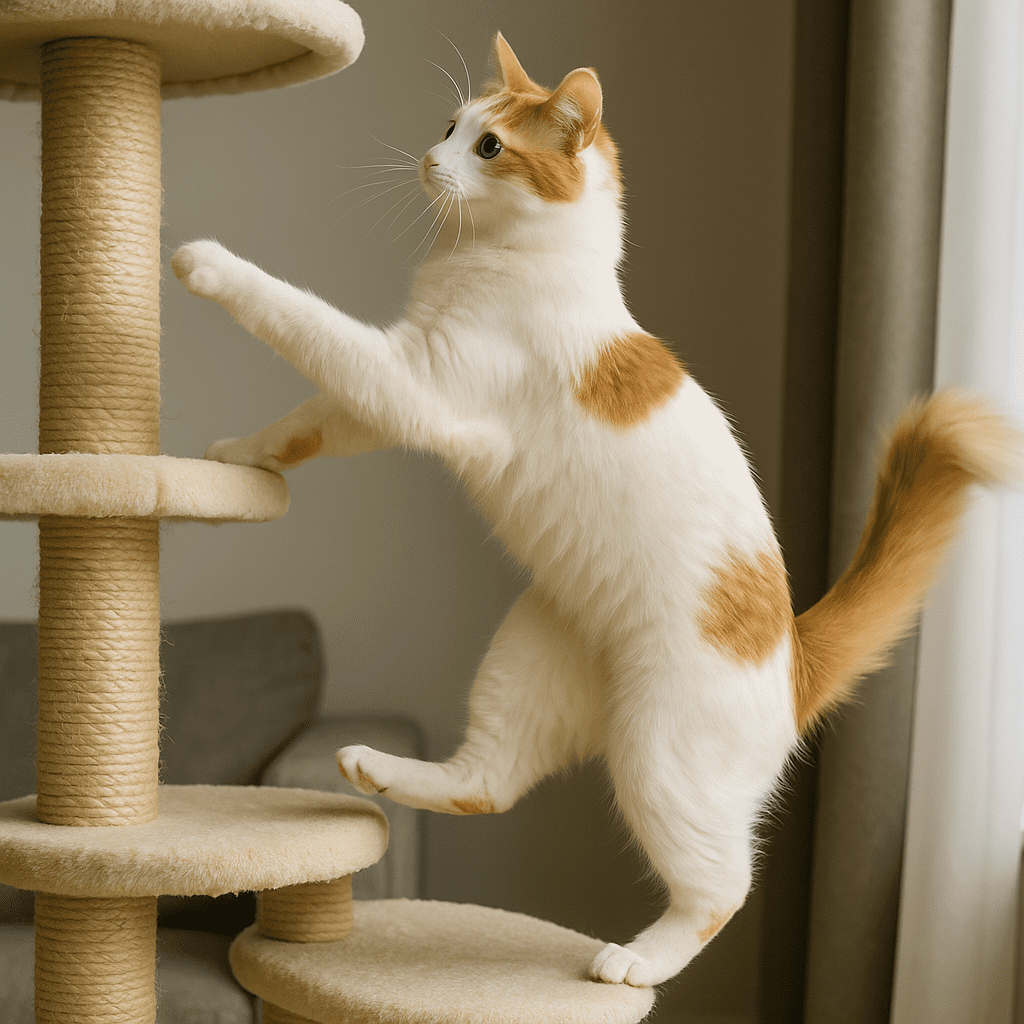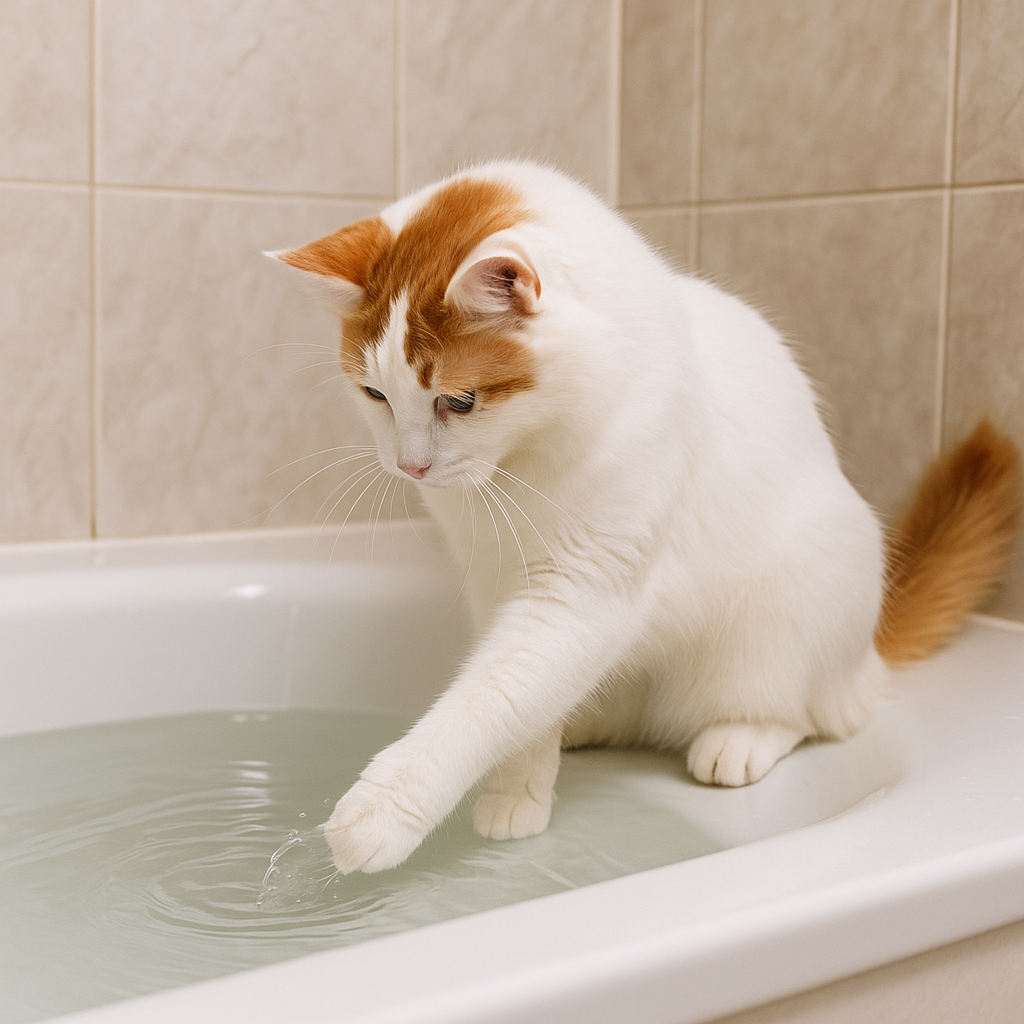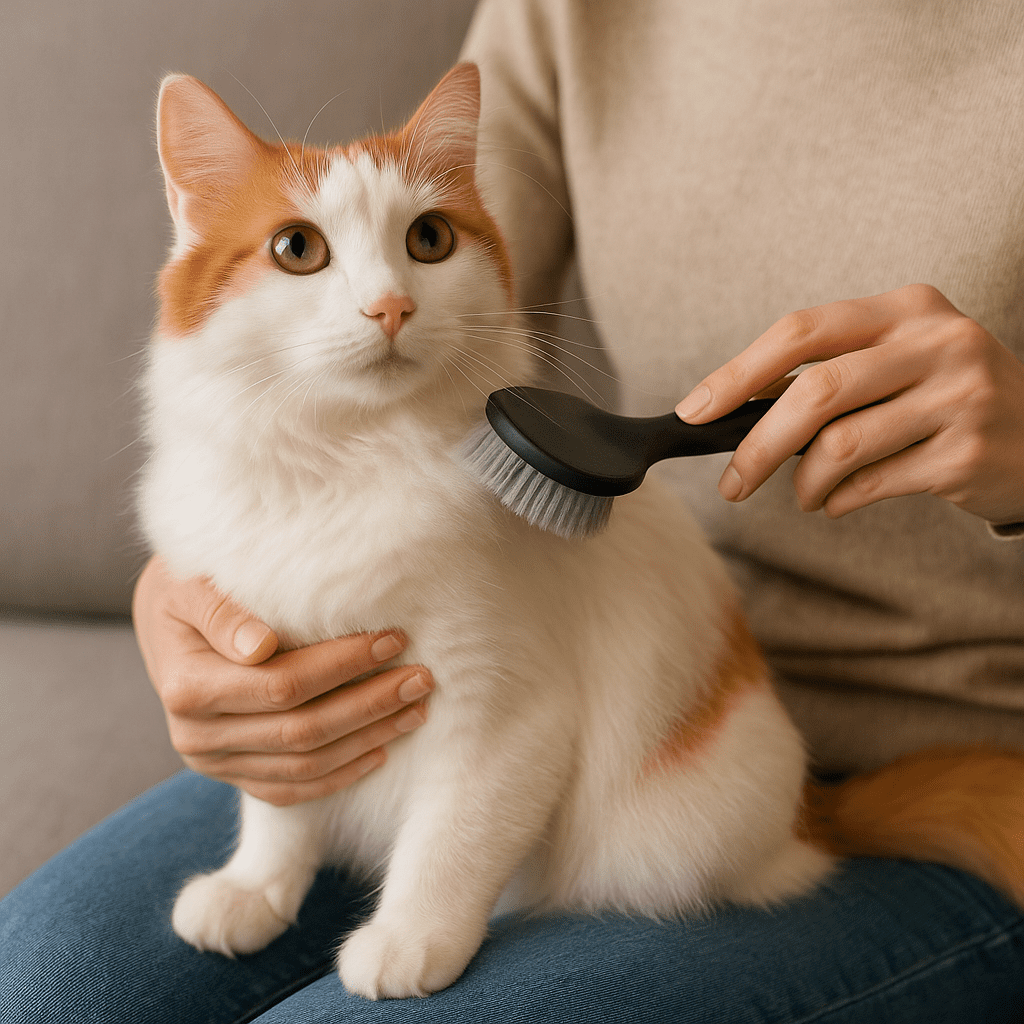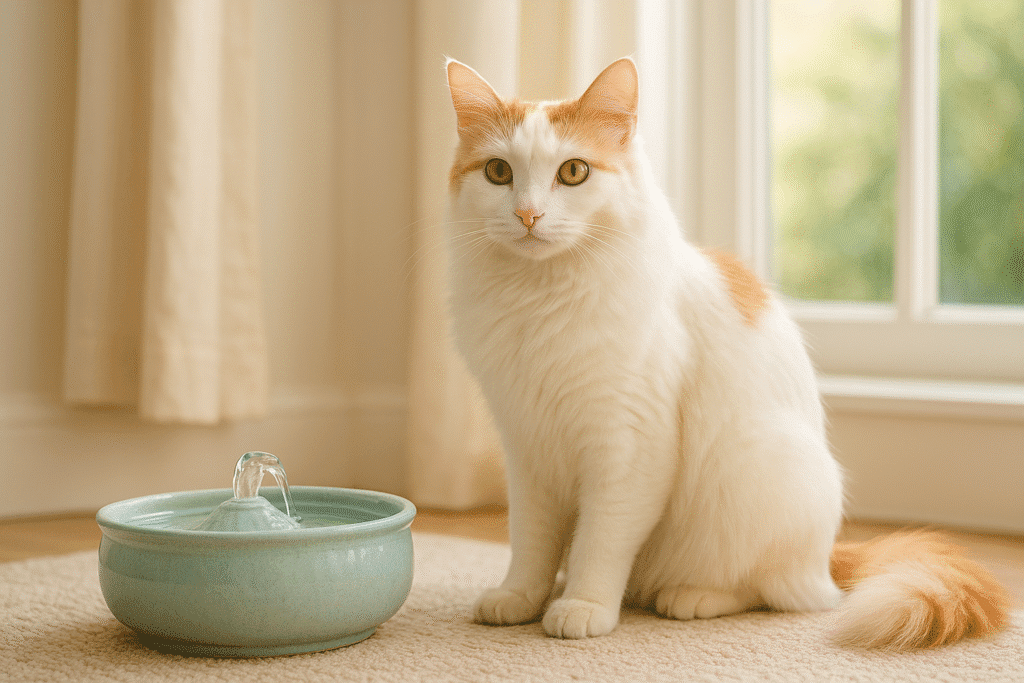This Turkish Van cat care guide explores the fascinating world of one of the few cat breeds that loves water. Learn about their personality, grooming needs, exercise, and health care tips to ensure your Turkish Van thrives as a unique and affectionate companion.
Introduction
The Turkish Van cat care guide is essential for cat lovers who want to understand and care for this extraordinary breed. Known as the “swimming cat,” Turkish Vans are famous for their love of water, strong personalities, and striking appearance. This guide provides everything you need to know, from grooming and exercise to health and socialization, so your Turkish Van can live a long, healthy, and fulfilling life.

History and Origins
The Turkish Van originated in the Lake Van region of Turkey, where they developed as natural swimmers in warm climates. Their thick, semi-long coat is water-resistant, making them perfectly adapted to their environment. These cats are considered a national treasure in Turkey and have gained popularity worldwide for their beauty and unique behaviors.
Turkish Van Personality and Temperament
Energetic and Playful
Turkish Vans are highly active cats that love climbing, running, and exploring. Their energetic nature makes them excellent companions for families who enjoy interactive play.
Affectionate Yet Independent
While they bond deeply with their families, Turkish Vans are not overly clingy. They enjoy affection on their terms, making them ideal for cat lovers who appreciate a balance between companionship and independence.
Love for Water
Unlike most cats, Turkish Vans are natural swimmers. Many enjoy playing with water bowls, jumping into bathtubs, or splashing in pools. This unique trait sets them apart from other breeds and requires specific home adjustments.
Essential Care for Turkish Vans
Exercise and Enrichment
These cats require plenty of stimulation. Provide climbing trees, puzzle feeders, and interactive toys to keep them mentally and physically engaged. Supervised outdoor play or cat-safe enclosures are excellent outlets for their energy.
Diet and Nutrition
Turkish Vans need a balanced, protein-rich diet to fuel their active lifestyle. High-quality cat food, portion control, and access to fresh water are essential. Avoid overfeeding, as their muscular build can hide early signs of weight gain.
Grooming Needs
Despite their semi-long coats, Turkish Vans have a unique single-layer coat that resists matting. Weekly brushing is usually sufficient, especially during seasonal shedding. Regular grooming keeps their coat healthy and reduces hairballs.

Common Health Challenges
While generally healthy, Turkish Vans may face certain health risks:
- Hypertrophic Cardiomyopathy (HCM): A genetic heart condition affecting some cats.
- Obesity: Their active nature requires careful diet management to prevent excess weight.
- Joint Issues: Their athleticism can sometimes lead to joint strain as they age.
(Outbound link: Learn more about cat breed health from PetMD: Cat Health)
Training and Socialization
Litter Training
Turkish Vans adapt quickly to litter training when consistency is provided. Keeping the litter box clean is essential for their hygiene.
Interactive Training
Because of their intelligence, Turkish Vans can learn tricks, fetch games, and even leash training. Positive reinforcement with treats and play works best.
Socializing Your Turkish Van
Early socialization ensures they grow into well-adjusted adults. Introduce them to other pets and people gradually. Their playful personality makes them great with children and other animals.
(Internal link: Learn more about social cat breeds in our Maine Coon Cat Care Guide)
Living with a Turkish Van
Turkish Vans thrive in homes that respect their independence but provide plenty of interaction. They dislike being bored, so dedicated playtime is essential. Families with pools or safe water play areas will particularly enjoy their unique swimming abilities.
Grooming and Hygiene Checklist
- Brush coat weekly
- Check teeth and brush regularly
- Trim nails every 2–3 weeks
- Provide scratching posts to maintain claw health
- Clean ears monthly to prevent infections

Frequently Asked Questions (FAQ)
- Do Turkish Vans really like water?
Yes, they are one of the few cat breeds known to swim and play in water willingly. - Are Turkish Vans good family pets?
Yes, their playful and affectionate nature makes them suitable for families with children. - Do Turkish Vans need a lot of grooming?
Moderate grooming is needed, but their coat does not mat easily compared to other long-haired cats. - What health problems affect Turkish Vans?
They may face obesity and heart conditions like HCM, so regular vet visits are essential. - How long do Turkish Vans live?
With proper care, Turkish Vans typically live 12–15 years.
Conclusion
This Turkish Van cat care guide highlights their water-loving traits, active personalities, and specific health considerations. With proper grooming, balanced nutrition, and dedicated attention, Turkish Vans can be extraordinary companions who bring joy, playfulness, and love to their families.
Call to Action
Want to learn more about fascinating cat breeds? Explore our complete cat breed guide here.

